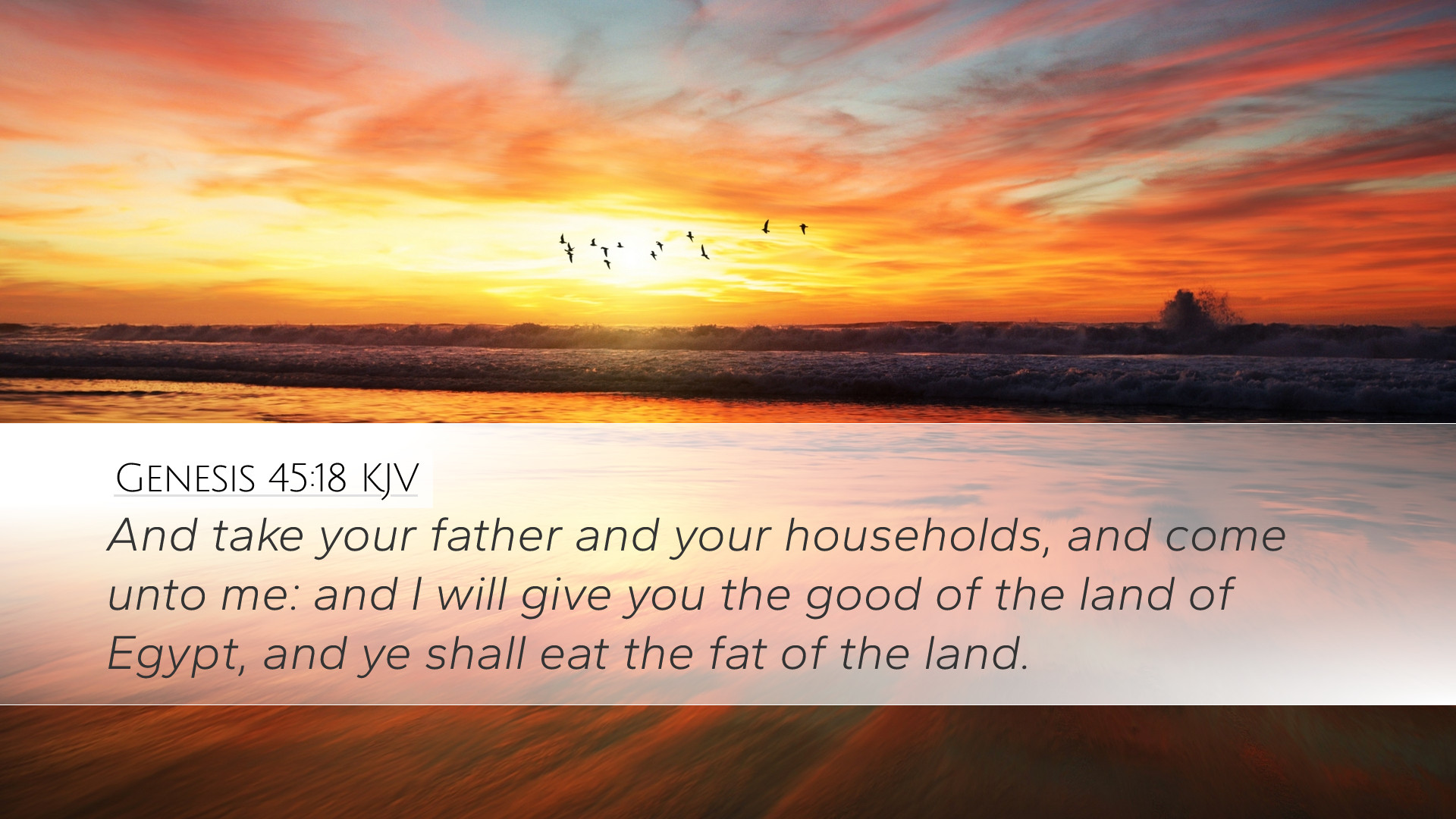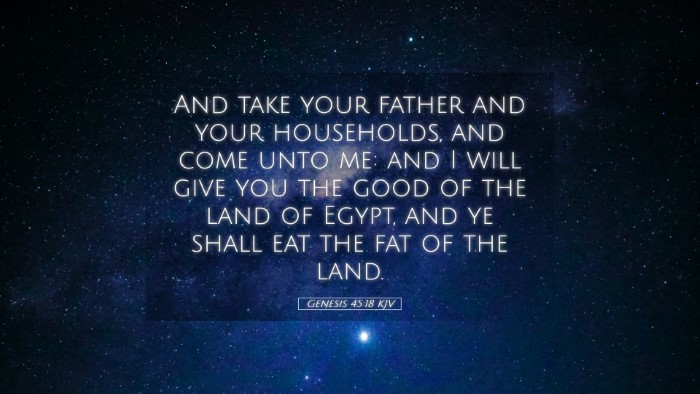Commentary on Genesis 45:18
Genesis 45:18 states: "And take your father and your households, and come unto me: and I will give you the good of the land of Egypt, and ye shall eat the fat of the land." This passage is pivotal as it reveals the grace and generosity of Joseph toward his brothers after their reconciliation. The wealth and abundance of Egypt symbolize not just material blessings but also the richness of God's provision.
Contextual Analysis
In the narrative of Genesis, Joseph's journey from being sold into slavery to becoming the second most powerful man in Egypt underscores themes of providence and redemption. By this point in the story, Joseph has revealed his identity to his brothers, which leads to a moment of deep emotional reconciliation. The command to bring his father, Jacob, and the entire household to Egypt signifies a restoration of familial bonds previously marred by betrayal.
Theological Implications
Joseph's invitation can be viewed through various theological lenses. It illustrates the concept of grace, where unmerited favor is extended to those who have wronged us. This reflects a Christological figure, foreshadowing the reconciliation God offers humanity through Jesus Christ. Joseph's benevolent offer symbolizes divine mercy and provision, inviting believers to partake in the abundance found in God's kingdom.
Insights from Public Domain Commentaries
Matthew Henry's Commentary
According to Matthew Henry, Joseph's call to his family to come and dwell in Egypt is rich with implications. He emphasizes that this act was not merely about material gain but that it showcased the depth of Joseph’s character and the grace extended to his brothers. Henry notes that Joseph’s desire to provide for his family demonstrates a shift from vengeance to reconciliation. This reflects God's relationship with His people—calling them to Himself and providing all that they need.
Albert Barnes' Notes on the Bible
Albert Barnes highlights the significance of Joseph’s offer to give "the good of the land of Egypt." This invitation indicates a transition from the hardships the brothers faced in Canaan to the prosperity that awaits them in Egypt. Barnes connects this provision to the fulfillment of God's promises to the patriarchs, illustrating how God's plans are often fulfilled through unexpected means and circumstances.
Adam Clarke's Commentary
Adam Clarke presents a detailed view of the socio-economic conditions of Egypt at this time. He clarifies that "the fat of the land" refers to the best produce and resources available. Clarke points out that Joseph’s invitation serves both a physical and spiritual purpose: it aims to preserve the lives of his family amidst famine while also restoring their relationship. Joseph’s actions reveal a crucial aspect of divine providence, where God provides refuge and sustenance in desperate circumstances.
Applications for Pastors and Theologians
Pastors and theologians can draw several applications from Genesis 45:18:
-
Reconciliation: The passage serves as a model for reconciliation in church and community settings. It encourages believers to extend grace to those who have wronged them, reflecting the character of Christ.
-
God's Provision: Joseph’s offer illustrates God's abundant provision. It challenges congregations to trust in God's blessings even in times of famine and hardship.
-
Family Unity: The emphasis on bringing the entire family to Egypt promotes unity and collaboration within households, urging pastors to cultivate environments where families can thrive together in faith.
Conclusion
Genesis 45:18 encapsulates a profound narrative of grace, reconciliation, and provision. By understanding the rich insights drawn from public domain commentaries, modern readers, including pastors, students, and scholars, can appreciate the depth of this verse and its implications for faith and community life. Joseph's gesture not only highlights his character but also serves as a reflection of God's unwavering commitment to redeem and restore His people.


